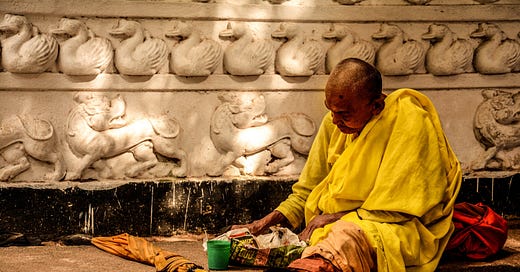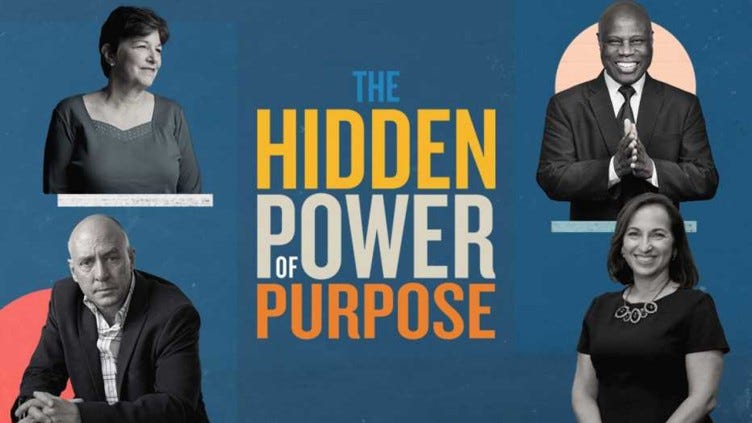A few years ago, a student in my Science of Well-Being College Course had an agenda. Regardless of the topic, she would insist that only the privileged have access to mindfulness, curiosity, courage, gratitude, positive relationships, and purpose in life. I responded:
"Let's not treat this as a fact, but as a question, a hypothesis. What do others think? What does the scientific evidence suggest?"
We might be wrong. We often view homeless people through a lens of deficit, lack, and void. We see them through our privilege and dehumanize them. We assume that psychological strengths and various dimensions of well-being are unavailable to them - until they cross the threshold of being sufficiently privileged.
Research shows that our assumptions are not just wrong, they're damaging. Homelessness is not a character flaw. It's a societal failure. It's a failure of our economic systems, our social safety nets, and our collective empathy.
Acknowledging and trying to alleviate the plight of homeless individuals does not require us to assume their psychology differs from ours.
Counterintuitive Research
In a series of groundbreaking studies on the subjective well-being of homeless individuals across diverse environments — from the streets of Calcutta to a self-governing tent camp in Portland, Oregon — researchers disrupted a stigma (read the actual work by my beloved collaborator Dr. Robert Biswas-Diener here and here). Despite objectively harsh circumstances, these individuals reported life satisfaction scores that hovered around neutrality (not extremely low or high). Dive into specific life domains and of course, homeless people in India and the United States showed the least satisfaction in their material resources (food, income, health, and most of all, housing). But as for their social life (romantic relationships, friendships, and family), they showed intact well-being. As for their sense of self-worth (morality and intelligence), they showed intact well-being.
What are the commonly endorsed strengths of homeless adults? I'm glad you asked because these findings should be shared everywhere.
perseverance
authenticity
humor
spirituality/purpose in life
open-mindedness
creativity
fairness
love of learning
hope
leadership
bravery
prudence
love
Reflect on this list and you start to view people's behavior and life affirming strategies differently. How many of you could persist without shelter and a stable supply of food? How authentic and open would you be if you had almost nothing left to lose?
Leave those assumptions aside about marginalized individuals that you know nothing about - directly. This research underscores the resilience of the human spirit and the capacity for finding personal satisfaction even in the most stark conditions.
A Stark Reminder
We need to stop treating people who are homeless as if they are lesser than. We need to stop assuming that they are incapable of resilience, of growth, of happiness, of working toward a purpose in life. We need to stop seeing them as a problem to be solved and start seeing them as individuals with unique, underused strengths and capabilities. We need to recognize the inherent dignity and worth of every individual, regardless of economic status.
The next time you see someone who is homeless, don't look away. Don't dismiss them. Don't dehumanize them. Instead, see them. Really see them. See their strength, their resilience, their humanity. And remember: they are not lesser than. They lack our scaffolding and protection. A prosperous society should never let that happen...
Provocation
"Imagine if you had to spend a week living on the streets. What strengths do you think you would need to develop to survive?"
"Consider a time when you were in a difficult situation and someone underestimated you. How did that make you feel?"
"Think about a homeless person you've seen recently. Now imagine them as a close friend or family member. How does this shift in perspective change your thoughts and feelings about them?"
"Imagine if your job for a week was to help homeless individuals find employment. What strengths would you discover in them and help deploy? How different are these qualities from the people you meet in the workplace?"
Provoked is free today. But if you enjoyed this post, you can tell Provoked that their writing is valuable by pledging a future subscription.
And if you want an individual meeting about anything including science, writing, well-being, mentoring, consultation, or life advice, click here.
Dr. Todd B. Kashdan is an author of several books including The Upside of Your Dark Side (Penguin) and The Art of Insubordination: How to Dissent and Defy Effectively (Avery/Penguin) and Professor of Psychology and Leader of The Well-Being Laboratory at George Mason University.
Connect on: Twitter or Facebook or Linkedin or Instagram
Read Past Issues Here Including:
The Hidden Power of Purpose: A Documentary Worth Your Time
If you are a paid subscriber, go to the bottom of this post for the meeting details for the AMA call for tomorrow at 12PM EST I'm thrilled to share some exciting news. I had the privilege of being part of an extraordinary documentary, 'The Hidden Power of Purpose.' This film takes you on a journey through the lives of four remarkable individuals, each discovering a unique path to a life brimming with meaning. Through career, family, spirituality, and in once case, a senseless tragedy, their stories illustrate the transformative power of purpose on our identity and well-being.



